We are notorious for wanting a quick fix. Give me something that will instantly make me feel better, be fit, be happy, relieved from all stress, organized, and satisfied. In truth, all of those things are complex and require work.
For example, happiness, joyfulness, being satisfied, and better dealing with stress happens for those who fully give their lives to Yahweh and trust in Him throughout every day. But this is a daily task.
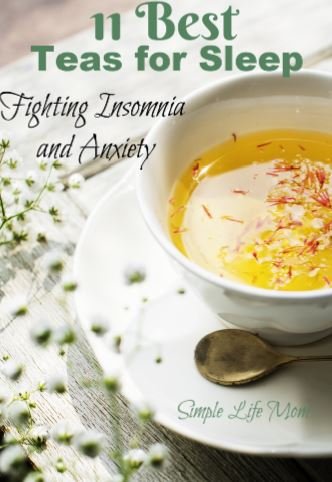
First Things First
Using the best teas for sleep to fight insomnia and anxiety is a great tool, but it’s just the tip of the iceberg when it comes to getting better sleep.
I assume you are finding out why you have anxiety and starting with minimizing that first and asking God how you can be at peace.
If you are not sleeping, then first rule out other factors stopping you from getting a good night’s sleep:
- Is your bedroom temperature cool?
- Studies have found that cooler temperatures help you sleep better.
- Are you going to bed early enough?
- If you go to bed at midnight or later you will get very little deep sleep, causing you to have less time in skin and health rejuvenation sleep.
- Are you using your bed mostly for sleep?
- Having meals and watching tv in bed trains your body to stay awake. Train yourself to sleep when in bed!
- Are you sleeping comfortably?
11 Best Teas for Sleep
So, on with the teas!
Do you want a tea that helps you relax, soothes nerves, or gets rid of headaches or joint pain? Choose which herb works best for your needs and even consider combining herbs for a tasty, effective tea.
Pay attention to how you feel. If it’s not working for you, try something different. Sometimes a tea can work wonderfully, but have side effects that don’t effect you for a week or more.
Make sure they are all ok for you if you are on any medications or if you are pregnant.
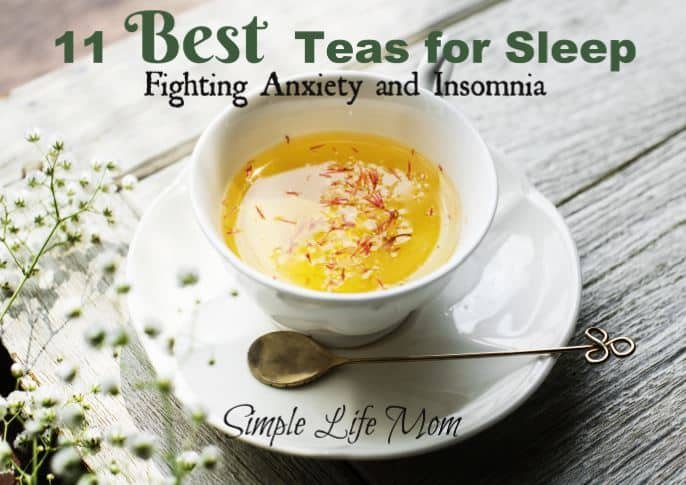
1) Lemon Balm (Melissa officinalis)
Lemon balm is calming to the nervous system. It has a pleasant lemon taste, which is a nice bonus for a tea that can calm heart palpitations and calm restlessness. Find it here.
2) Blue Vervain (Verbena hastata)
Blue Vervain (also called Wild Hyssop) is a common north American plant, often found in moist areas. Externally it has been used to help wounds heal faster. Leaves, flowers, and roots are edible. As a tea it is relaxing and helps to calm nerves. It’s not recommended for pregnant women or those on blood pressure medication, but is used for nursing mothers who have a difficult time producing enough milk. Find it Here.
3) Chamomile (Matricaria chamomilla)
It is in the ragweed family. If you know you are allergic to ragweed you may be able to use a small amount of chamomile in your tea to help inoculate you, but you should be careful so that you do not have a reaction. Find it Here.
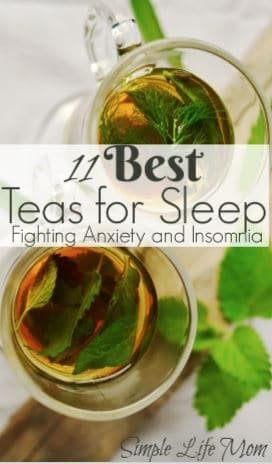
4) Passionflower (Passiflora incarnata)
5) Valerian Root (Valeriana officinalis)
Valerian is the King of herbs for insomina! It’s calming and helps the mind to stop racing and get ready for sleep. Find it Here.
6) Lavender (Lavandula angustifolia)
Lavender is very mild (mild enough for children and elderly), and yet most people have great results with insomnia by drinking a lavender tea before bed. I’m not a fan of the taste, but like with most herbs, combining it with another herbs greatly enhances the taste. Find it Here.
7) Lemongrass (Cymbopogon citratus)
Lemongrass has sedative properties that can really improve sleep quality so that when you do fall asleep you sleep better. Find it Here.
8) Spearmint (Mentha spicata)
Spearmint is often used in sleep teas because of the added flavor, but also because it can settle your stomach and relieve headaches so that you can fall asleep more easily. Find it Here.
9) Linden Leaf (Tilia cordata)
Linden leaf is also used for insomnia, but don’t drink too much or you’ll be up all night needing to pee. Adding a little to your tea before bed is very effective though. It is calming and a mild sedative. Find it Here.
10) Magnolia Bark (Magnolia officinalis)
11) St. John’s Wort (Hypericum perforatum)
St. John’s Wort helps to uplift and calm so you can get better sleep. I can cause photo-sensitivity over time, so be careful if you drink it daily. Find it Here.
**Also, if you like to use essential oils, try diffusing vetiver at night. I have first hand experience of its great effects for calming the mind and relaxing one to sleep. I highly recommend it.


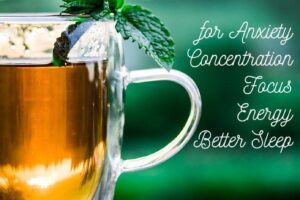
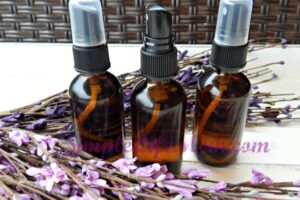
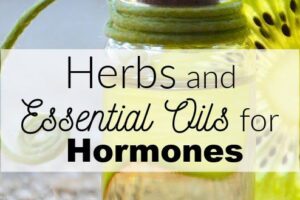


7 Comments
Leave your reply.